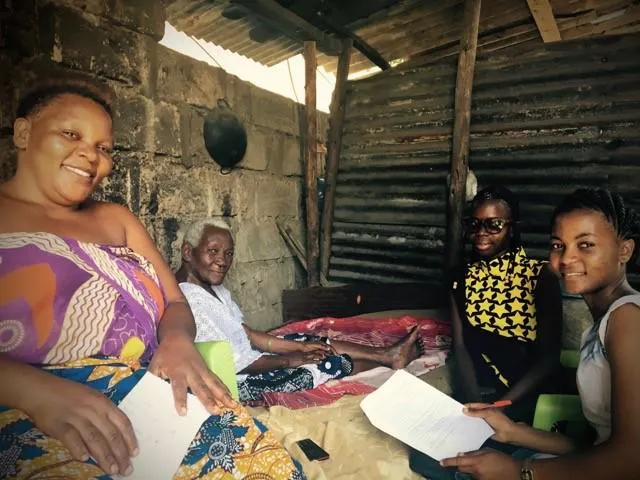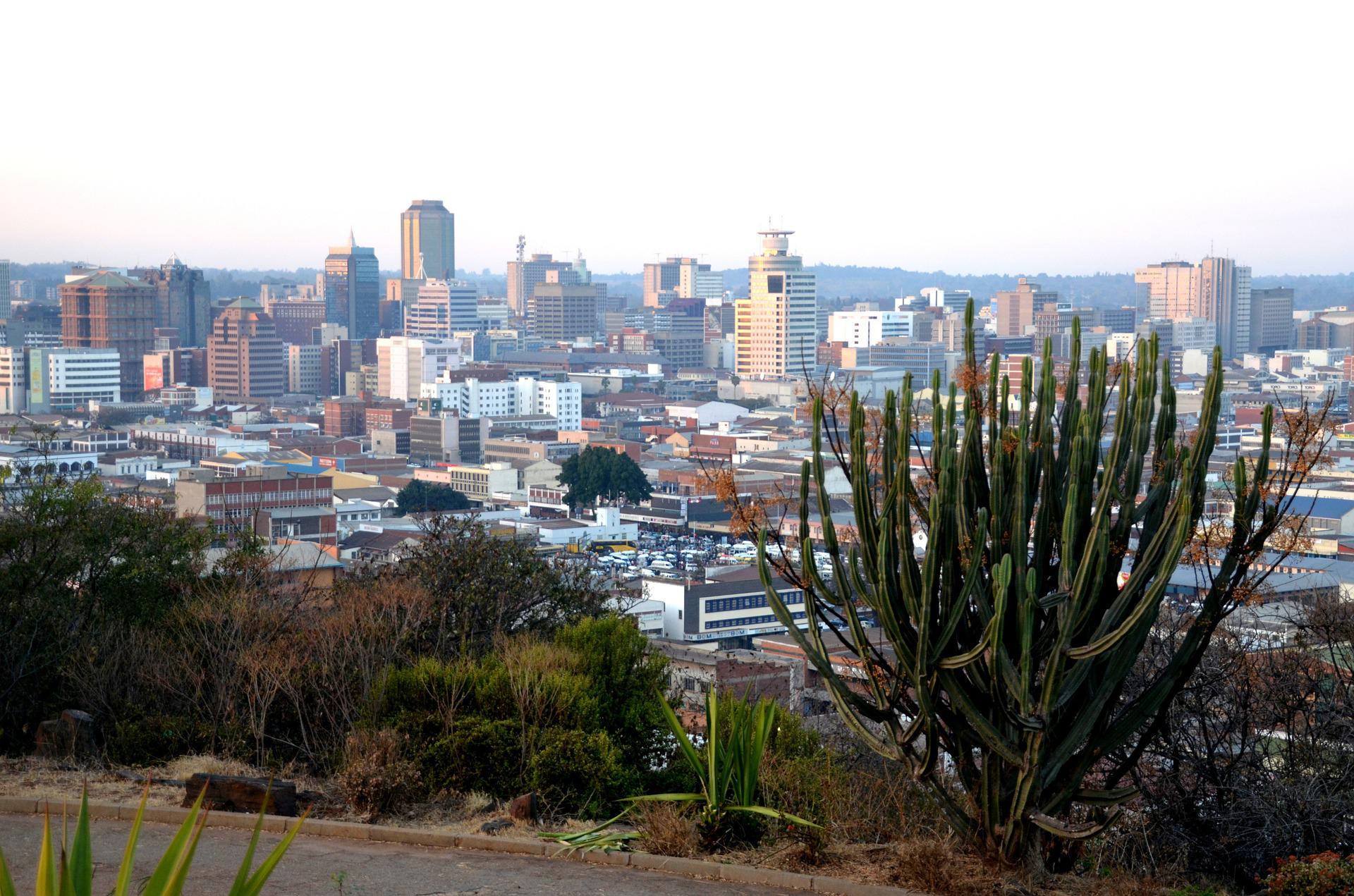Unplanned urbanisation in rapidly expanding African cities requires effective public policy. However, policies such as property rights reform often find low uptake and fail to deliver positive outcomes, especially in the short-term. Our research on land tenure security in Dar es Salaam’s informal settlements aims to understand the motivations of plot owners to take up (or not) various proofs of ownership that may offer more ad-hoc and context-relevant solutions to tenure insecurity.
Dr Martina Manara received her PhD in Regional and Urban Planning in 2021, from the department of Geography and Environment at LSE. She is now a Post Doctoral Research Fellow in the department. Dr Erica Pani is Assistant Professor of Local Economic Development and Planning in the Department of Geography and Environment at LSE.
This article was originally published in LSE Research for the World.
How can people living in the informal settlements of Dar es Salaam ensure they have rights over where they live? Work by Erica Pani and Martina Manara explores the different proofs of ownership available in Tanzania’s largest city.
Dar es Salaam: home to over five million people, this bustling Tanzanian city is the largest in East Africa and one of the fastest growing in the world. While serving as the country’s financial hub and attracting international attention for its arts and culture scene, the city has another side, with around 70 per cent of its sprawling population living in informal settlements.
In these cheek-by-jowl communities, mostly comprised of dwellings made from crumbling concrete blocks, 15 to 20 people will often share a plot of land. Street vendors selling samosas and chapatis fill the streets while local buses (dala dala), motorbikes and rickshaws (bajaj) honk their way across dirt tracks.
“Everyone is doing what they can to make ends meet. These settlements lack infrastructure, they are prone to poverty, there’s lots of flooding and there are hardly any roads or streetlighting. One of the big problems with people living in these settlements is they don’t have permanent land rights,” explains Dr Erica Pani.
Land tenure, property rights and the reality for those living in crowded, informal settlements
[People] want to be able to say, ‘this is my boundary and you can’t be here’. They want to protect themselves against land disputes and pass on property in terms of inheritance.
Based in the Department of Geography and Environment at LSE, Dr Pani and her research partner, Dr Martina Manara, have been investigating land tenure and property right formalisation and regularisation in Tanzania since 2017. To do this, the pair have undertaken embedded fieldwork, living in the informal settlements of Dar es Salaam and surveying the residents about different types of land ownership.
Currently, in Tanzania, there are three levels of property ownership for those in the settlements. The most basic type of ownership is a sales agreement. This is a customary right protected by the 1999 Land Act that will often take the form of a paper contract.
The next level is a residential licence. Brought in by the government in 2004 as an intermediary form of property right, the licence gives low-income earners and dwellers in the most consolidated informal settlements an interim property right that lasts for five years. This gives the dweller the same benefits as a full title deed but for a shorter time.
The highest form of property right is the title deed. Known as a certificate of right of occupancy (CRO), these rights are usually valid for 33, 66 or 99 years. However, they are expensive to obtain.
To date, the residential licence has been offered to 220,000 plots/households in Dar es Salaam and there are plans for the government to offer it to more households. Dr Pani and Dr Manara’s research involved surveying those eligible for the licence to see if they had taken it up or not and the motivations and social norms guiding levels of uptake.
People want full rights to the land they live on: presenting Tanzanian views to the government
In total, the research team surveyed 1,363 households, and the findings were presented to the Tanzanian government. These will be published in detail in an upcoming paper but, Dr Pani says that, overwhelmingly, people desperately want full regularisation of property rights and the title deeds for the land they live on.
“People are interested in regularisation and making this process more affordable and accessible. They want to be able to say, ‘this is my boundary and you can’t be here’. They want to protect themselves against land disputes and pass on property in terms of inheritance,” explains Dr Pani.
The registers [Mtaa leaders] had for all the properties on their patch were extremely flimsy… everything was disintegrating.

Connecting with local researchers and Mtaa leaders
To carry out their research, they worked closely with Ardhi University in Dar es Salaam, where some students from the university’s planning course became their research assistants, helping to conduct the survey and acting as translators. Several of the students – Robbie, Emilia, Prosper and Erick – are still working with the team on new projects.
As well as the students, Drs Pani and Manara relied heavily on the help and support of Mtaa leaders in the settlements. These are elected leaders of the smallest unit of local government in Tanzania – equivalent to villages in rural areas. The Mtaa leaders were instrumental in advising the team about the settlements, highlighting the boundaries between different areas and setting up meetings with residents.
“One of the things we noticed when talking to all the Mtaa leaders was that they were working with really outdated maps that were falling apart. The registers they had for all the properties on their patch were extremely flimsy. After years of being thumbed through, everything was disintegrating,” says Dr Pani.
As a thank you for their support with the project, the researchers decided to provide all 52 Mtaa leaders with colour aerial photo maps of their areas, giving them visual oversight of all the dwellings within their boundaries. The money for this project was provided by LSE’s Knowledge Exchange and Impact Fund which supports LSE academics to share their research with stakeholders outside of academia.
Going forwards, the team are working on several other projects in Dar es Salaam, including research into the role of private companies in regularisation. They hope their work will influence policy in the country and demonstrate the tensions between the different proofs of ownership.
For Dr Pani, the project really opened her eyes to everyday life in one of the world’s most vibrant cities. One where she hopes her research can make a positive difference to the lives of its citizens in the future.
Images: Erica Pani
Dr Erica Pani and Dr Martina Manara were speaking to Charlotte Kelloway, Media Relations Manager at LSE.




An interesting research project work! I like the approach Martina has chosen, engaging the Mtaa Leaders. These are well connected with landowners in their areas of jurisdiction and they even keep statistics of their people which is very up todate compared with the National Census reports.
I am looking forward to reading her report.
( I am a retiree from Ardhi University)